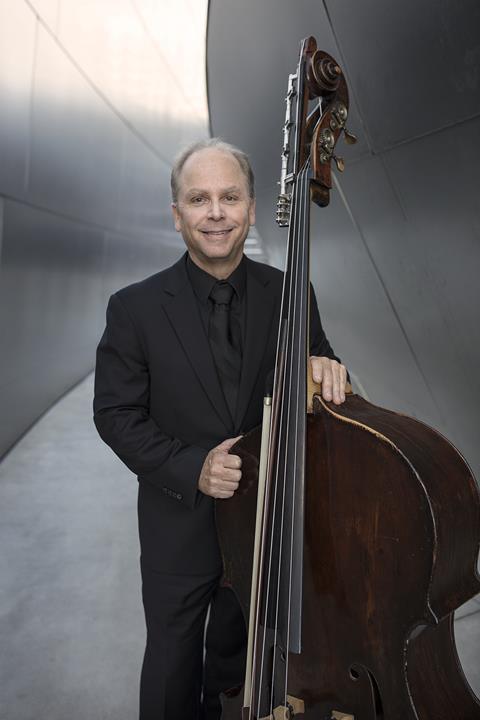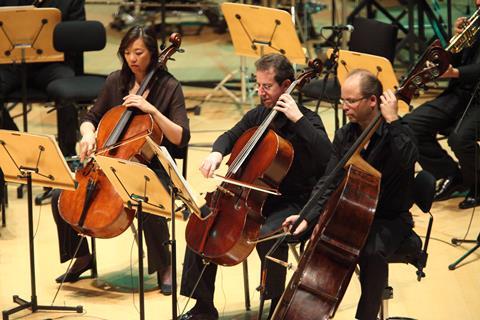The US double bassist on his early influences and lessons learnt from his nearly four decade-long principal position at the LA Philharmonic

Discover more Featured Stories like this in The Strad Playing Hub.
Read more premium content for subscribers here
The teacher I must give the most credit to is Homer Mensch, with whom I studied for eight years at the Juilliard School from my teens. He had a profound effect on me not only as a bass player but also as a person. He was tremendously warm and the way he dealt with others helped me become who I am today. In terms of bass playing, sound was the most important thing for him. In the same way that everybody’s voice is unique, he thought your sound had to be too. He worked tirelessly on developing my right hand and my individual voice. In an orchestra there are only about eight to ten basses, so it’s important to have that extra gear in sound production. It’s not just about volume but also colour.
I also have to give credit to my father, who was a musician himself. I would play for him a lot and he wasn’t shy about giving his opinion! I remember once playing for him and being really happy with how I had played. He sat there and said, ‘You need to stop thinking about being a good bass player and always think about being a good musician.’ It struck me, and I’ve since carried that with me wherever I go. It’s easy to get wrapped up in what we do technically, but it’s critical for us to be always looking outwards too.
It’s critical for us to be always looking outwards
After my time in New York I needed something new, and moved to Los Angeles to be a section bass player in the LA Philharmonic. A few years afterwards I became co-principal. I’ll be the first to admit that I was a bit gung-ho at first! I thought I needed to take charge, which was probably the worst thing to do because I was playing in a section with guys who already knew exactly what they were doing. Being a good leader is all about listening. I like to run my section in a cooperative way and want everyone to feel engaged. Whether that means they can suggest bowing or how to do things differently, it’s about providing a stable platform on which they can operate best.

The standard of playing nowadays is so high that playing the right notes isn’t enough any more to win positions in orchestras. And unfortunately there just isn’t enough space for everybody. It’s a real gut punch for those who get to the final stages but don’t get the job. I try to encourage them to keep going, but that’s easy for me to say! Ultimately my main piece of advice is not to close yourself off to what’s around you. This is one of the reasons I can’t see myself anywhere other than the LA Phil, and have stayed for almost four decades, because the players take risks and are constantly evolving. When you’re aware of what surrounds you, you’ll be surprised by what you hear.
INTERVIEW BY RITA FERNANDES
Read: Ludwig Quandt: Life Lessons
Discover more Featured Stories like this in The Strad Playing Hub.
Read more premium content for subscribers here
The number one source for playing and teaching books, guides, CDs, calendars and back issues of the magazine.
In The Best of Technique you’ll discover the top playing tips of the world’s leading string players and teachers. It’s packed full of exercises for students, plus examples from the standard repertoire to show you how to integrate the technique into your playing.
The Strad’s Masterclass series brings together the finest string players with some of the greatest string works ever written. Always one of our most popular sections, Masterclass has been an invaluable aid to aspiring soloists, chamber musicians and string teachers since the 1990s.
American collector David L. Fulton amassed one of the 20th century’s finest collections of stringed instruments. This year’s calendar pays tribute to some of these priceless treasures, including Yehudi Menuhin’s celebrated ‘Lord Wilton’ Guarneri, the Carlo Bergonzi once played by Fritz Kreisler, and four instruments by Antonio Stradivari.






































No comments yet